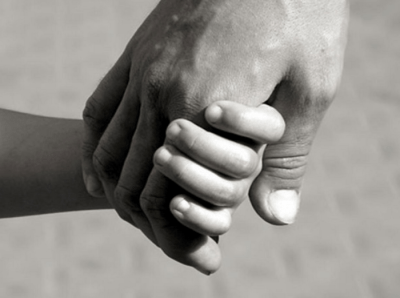You might have wondered if your addiction has impacted your children. Well, wonder no more. Of course, it has! To what degree, depends on their individual experience. If your children are young, you may not see the effects for years. If they’re older, chances are, you’ll see behavioral and mood changes, immediately. No matter what age your children are, below are 5 things you can do to improve your relationship, once you’ve completed treatment.
1. Improve communication
Your body language and tone, speak volumes. Ninety-three percent of communication is through non-verbal cues. Pay attention to the tone of your voice, your facial expressions, and your posture. Check out your children’s body language, too. What is it telling you? Our children don’t listen to what we say, they watch, what we do. Are your words and actions, congruent? Kids, who grow up with addiction, may be traumatized. You might be unaware of how deeply affected they’ve been, by your behavior. Learn to make being around you, safe, for them. Don’t use your kids, as a sponsor. Children should not be involved in adult issues or marital problems. Spend time with your children. Learn what activities they like to participate, in. Go to the park. Play ball. Colour pictures, or draw hearts and rainbows. Building a healthy relationship with your kids takes time. Go slow, relax and have fun.
2. Watch your expectations
Just because you’ve completed treatment, does not erase your past. Trust will still be an issue. That’s just the way it is. Your family hurts. It will take them a while to get over it. If you find you’re resentful, know this is one way your addiction, is still actively working on you. Pick up the phone and call your treatment center or recovery coach, quick! Resentments are the number one killer of addicts and alcoholics. (Along with self–pity and enabling) Allow your family the time to take as long as they need, in their healing process. If you push them, the message you’re sending is clear – you come first. Truthfully, your needs are no more important, than the rest of your family members. In healthy families, everyone can get their needs met. Remember, you’ve had the privilege of going to treatment, they haven’t. This is your family’s opportunity to heal. Let them!
3. Avoid all-or-nothing statements
You may fall back into old behaviors. Rigidity and self-pity, being among the top. Watch for all-or-nothing statements. For example, you love Mom more than me. You never listen to me. You always want to be with Mom. Don’t lay guilt trips on your kids. If they shy away from you, they’re not being bad, they’re being, cautious. They only have their past experiences with you – to draw from. You might feel better now, but they’ll need time to trust ‘the new’ you.
4. Make amends with your children.
Have a heart-to-heart discussion with your kids. Say you’re sorry for scaring and hurting, them. Let them know you’re doing your best not to repeat those mistakes. Be age-appropriate. Children don’t need all the nasty details. Expect outbursts from your kids. When you become safe, they’ll stop walking on eggshells around you. You can expect to see tantrums and tears. It’s okay. This is normal behavior. Just as you need to debrief the way you feel, so do your kids. Don’t punish them for having rough moments. If you find yourself reacting to their emotions, take a breather. Call your sponsor, go to a meeting, or reach out to your higher power. Remember, your kids are simply a product of their environment.
5. Practice affirmations and use feeling words
Tell your children how proud of them, you are. They’ve weathered a big storm, through this difficult time in your family. Say I love you, often. Pay attention to what is going on in their world. Make eye contact when you talk with them. Your addiction is selfish. When using, you were focused on yourself and oblivious, to your family’s needs. But you’re not anymore. Now’s the time to get curious, allow yourself to walk in their shoes. Notice if they’ve had a hard day, or if they’re struggling. Practice listening. Although you might not think it’s a big deal their best friend is mad at them, they do. Hear what they have to say. You don’t always need to respond. Listening with empathy validates their sense of worth and importance. Don’t worry. You don’t have to make everything all better. They just need to know you’re there and you care. Addiction is a genetic and/or environmental illness. Your child’s chances of becoming addicted are higher than normal. You may not be able to prevent this, but by you choosing help, they’ll know recovery is possible. Although you can’t go back and undo the damage, you can repair it. Being a healthy and approachable, role model, will influence the choices your child will make, going forward. If you or someone you know needs help, please call this confidential support line for assistance. 844-470-0410.


